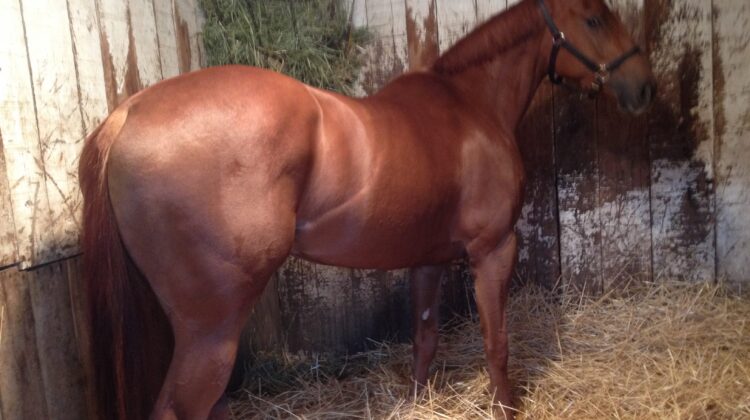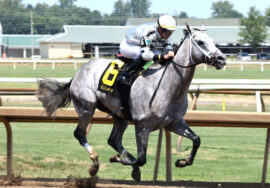
Horsemen: Know the 2025 health requirements to get horses onto KY tracks etc starting Jan. 1
2025 EQUINE HEALTH GUIDE
Entry onto KY Thoroughbred Tracks, Training Facilities etc
Contact: Rusty.ford@ky.gov December 4, 2024
The following is from Rusty Ford, equine operations consultant for the Kentucky Department of Agriculture’s Office State Veterinarian:
With the 2025 racing season soon to be upon us, and the many changes that took affect with implementation of HISA’s guidelines for thoroughbred racing, I want to take this opportunity to restate that the KY Department of Agriculture’s Office State Veterinarian is responsible for establishing, assisting tracks with implementation, and regulating the health requirements prescribed to mitigate risk of introduction and spread of communicable disease in our racing populations.
Below are the defined health requirements that all horses (including non-racing horses – i.e., lead ponies, stable mates etc) are required to meet to gain entry onto a Kentucky thoroughbred track or sanctioned training facility. Documentation that each horse meets the requirements shall be provided to the stable or facility manager on arrival and copies of the documentation are to be kept in the barn area that the horse is stabled in.
GENERAL ENTRY REQUIREMENTS: All equine entering the backside of a Kentucky thoroughbred racetrack and sanctioned training facility shall be accompanied with a current negative EIA Test Certificate (aka Coggins) and be listed on a valid Certificate of Veterinary Inspection (CVI) issued by a USDA accredited veterinarian familiar with the horse and the environment from which it originated. We continue to encourage tracks to adopt and implement our guideline that the examination and issuance of the CVI be required to be completed during the 72 hours prior to the animal’s arrival. Additionally, our recommendation is that each horse entering the backside be vaccinated against Equine Herpes virus Type 1 (EHV-1) by or under supervision of a licensed veterinarian a minimum of 14 days and no more than 120 days prior to entering the stable area. The inoculation should be recorded on the CVI by the issuing veterinarian and include the name of the product administered, and date of inoculation. Once a horse receives the initial EHV-1 vaccination, revaccination should occur every 120 days. Please note the minimum 14-day vaccination applies only to horses that have not been vaccinated for EHV-1 during the preceding 120 days. To ensure compliance, I do ask that health requirements be published in the Application to Stable, Conditions Book etc.
Thoroughbred Racing and the Horseracing Integrity and Safety Authority (HISA): January 1, 2023, was HISA’s published deadline of required vaccines and tests to be recorded on the HISA portal. It is published that HISA will start enforcing this regulation and will potentially prevent horses from entering to race if the required vaccines and tests are A) not listed on the Horse’s Health records or B) not up to date, as required by HISA rule 2143. Questions regarding implementation, oversight, and enforcement of the HISA rules in Kentucky should be directed to the tracks and/or racing commissions.
Health Requirements for horses entering the grounds are subject to change without advance notice.
Respectfully,
E.S. Rusty Ford
Equine Operations Consultant
KY Office State Veterinarian












